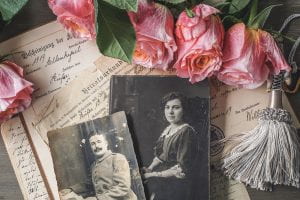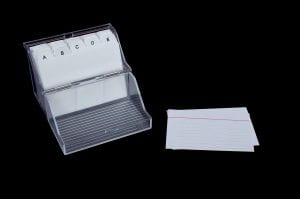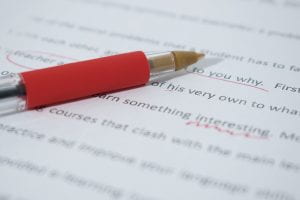Gee, I am nearly up to date with the #ANZAncestryTime chat summaries. Had time to do this one today at the library as only two people booked and one of them didn’t turn up. So plenty of time to write a post.
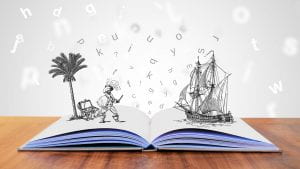
Which part of your family history research do you consider most important to be preserved and why? ie trees, documents, memorabilia, stories, all?
all of it. Bits ‘n’ pieces can be used in error, which would not be helpful to future generations SLR
Stories and memorabilia – the rest can be recreated (albeit painfully!) but those stories and and memorabilia are irreplaceable
I think you might have nailed it here. Today Dad and I were talking about framing his grandfather’s medals in a kind of shadow box. But he was the one who said we need a story with it as well so it means something. So a bit of both.
That’s a really good example Alex, especially when I think of the most effective museum exhibitions I’ve seen e.g. Egyptian Museum in Berlin – a room of papyrus fragments brought to life because they told stories about them
Photos are a good idea too Mandy. I was just thinking that if I could have only three photos of each person in my tree it would be the “maiden, mother, crone” approach 🙂
I would hate to see my trees lost but I have no one interested Tara. Much of my research though is in my stories in blog posts
a lot of my research is in wordpress websites/blogs and I’m hoping my daughter will keep them in the future if not adding to them
I know the @NLIreland is archiving sites of Irish interest so hopefully that will include Irish-oriented genealogy blogs but how do you ensure your blog content survives if wordpress dies?
Above all – the stories. I have insights into parts of Australian history that I had no idea about. Or, had studied the history but didn’t realise any of my ancestors were associated with the events (e.g. Eureka Stockade). But, also documents, photos.
For my own research, the work I have done to try to identify mystery 2xGGF. Even if I don’t figure it out, I would like to leave a head start for someone else
yes – nothing more frustrating than a bunch of notes but not accurately sourced or presented clearly.
I think we still need to downsize our digital photo collections too – do we need all of them? perhaps a few digital albums to pass on or store online
the tree initially as family members like to see number of people and see where they are in grand scheme of things. Stories in a blog is the best thing as it provide more tangible relatable details.
In the same way I was taught by my mother and use her 50 years of work, I am working with my nephew. He is starting to get his young sons interested and eventually I hope his baby daughter, my namesake.
Do you think that because our family thinks this gig is “ours” they switch off? Maybe when we’re not around?
good point. I am starting to have those discussions now. Along the lines of what would make you keep this? Is it about how it is presented? Is it attractive. Is it portable (fits in a box) – i.e. not overwhelming.
I just found a box of boxes of slides in my back bedroom mentioned in my NFHM post . What to do with them is another problem.
I am adding many of my family members to WikiTree writing detailed biographies based on sources. I add my family to FamilySearch. I am hoping to write more of my story, but am finishing off my research road safety scrapbooks this year.
Excellent strategy, adding the sources and stories to online trees such as Wikitree and FamilySearch
For me it would be my tree. I have very little in the way of memorabilia. My FTM tree has photos attached. I wish I had more. I have found some online and a few have been sent to me (digitally) from newly discovered cousins. Always exciting
The trees, the evidence that underpins the trees and the stories that go with the trees
Overall, all components are key to handing over a complete family history. Trees are needed to explain who fits where, documents to support your discoveries and stories to bring it together. Memorabilia offers a tangible link to ancestors.
yes Pauleen the tangible stuff is so important isn’t it? If we can’t walk the land our ancestors stood on, it’s good to hold something they touched e.g. medal or cloth.
IMHO it is the stories of people’s lives that most need to be preserved as usually they will contain all the other elements
All are important but I think stories as you might be the only one that knows that story. A genealogy tree/database can be stored online easily or given to others but only you can write the stories.
what an interesting question. I think descendants get most excited about the trees to begin with – “Ooh look how far back you’ve gone!” but it’s all meaningless without the stories I reckon.
Totally agree Alex. Researching family history has to include finding the stories that make our ancestors become real people
That is very true. I add links to my blog to each individual where I’ve posted their story.
I think that family documents and personal items like photographs are the most important things to preserve
The most important part of family history research to be preserved will be the write up.
I agree because it would typically include reference to the other aspects.
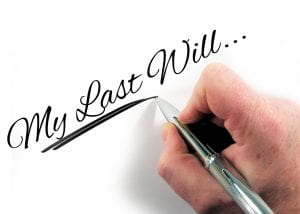
Have you made plans for or had discussions with your family about what will happen to your research? Do you have a beneficiary chosen and recorded?
vip to consider maintenance of websites especially those that were based on html WYSIWYG technology – a big issue as not so many folks will be able to code in html for websites in the future. This is an issue that the Fellowship of First Fleeters is currently working on
It’s the fluidity of technology that makes me nervous. What will last, what won’t?
Yes. I’ve looked for advice from the major libraries and archives and have followed it with sound files.
I have a niece who has some interest but haven’t discussed plans for my research when I’m gone. It would be a shame for the research to be lost but it has given me a lot of pleasure over the years
Mind you, I have no intention of falling off my perch until I’ve smashed all my brickwalls
When my grandkids visit I show them the items I’ve bequeathed to them and tell them why. I may hand the items over before I pop my clogs but the kids need to be a bit older.
I haven’t yet. I don’t currently have anyone interested although a couple of my cousin’s kids ask questions occasionally. Maybe in 10 years…
school assignments or history assignments usually prompt questions don’t they?
Already answered that. In my will I leave various items to people that I hope will use them. BUT I am getting rid of them now as I am the best to know what is what. I have disposed of five people’s stuff, I’m working hard on my own.
As the older generation we need to tell them about the things they may see so don’t hide things away too much so that they can ask us
yes I think this is the trick. If it is important to us we need to have it on display so that it prompts questions 🙂
I have a convict diary Alex that I believe I have the only full transcription of and both the original and microfiche have disintegrated. I was thinking SAG for that
As there is no one close to me, I am planning to have it all online in various places eg subscription database trees, blog posts on my website (archived by NLA in Trove) and PDF copies of my family histories for whoever wants them
I’m like Shauna, all online for others to connect with and read when they become interested.
I am toying with the idea of preparing something to donate to SAG according to their guidelines.sag.org.au/Deposit-Your-f
I think it may have been more a direction than a discussion 😉 one daughter is my designated beneficiary and that is included in my will. Key memorabilia is also outlined for descendants
very organized Pauleen and people appreciate that. Dad is super organized and has written lists of who should get what and has discussions with me regularly. All amicable. He is a good painter and so his artwork needs to be shared around.
we are such hoarders that my daughter is determined that we will clean up the house now. So those sort of conversations have started. I often wonder if the freshly minted grandson will be interested. No formal arrangements yet.
I know I should make plans but currently my son is not interested he has cousins who may be more interested
I have no idea as yet. No one else in my family is interested. My half-sisters are interested in our Chinese side (paternal), but my maternal side may need to be donated to SAG or a library etc
Passing on access to DNA data is important too

If no family member is interested in inheriting your research, what steps can you take to ensure it is preserved?
I do have some bits from my father-in-law of historical interest – Union card (branch president) from the 1830s, and letters from the masons building Scott Monument in Edinburgh. I’m looking into best places to donate these
yes sometimes our family isn’t the best place – a museum e.g. Australian War Memorial or State Libraries are a great place for precious memorabilia e.g. diaries/letters
My great grandfather was a cooper. His tools were passed down but we could not keep them so donated to a brewery museum who was able to take and display them..
Especially if an ancestor had no descendants, giving artifacts/documents/photos to museum or library or archive or historical/genealogical society will keep them safe for future researchers
in my estate trust I have a letter of direction for how to dispose of various parts if no one is interested. Org. Names & addresses included.
So important to write instructions regarding what happens to our #Genealogy collection after we join our ancestors. You can also check with the organizations in advance to confirm what they will accept.
My current strategy is to put everything online as much as possible – so trees at WikiTree, FamilySearch and all the ‘biggies’.
Yes, share family trees online to be sure info continues to be available. And for #CousinBait!
none of my family show any interest in family history, occasionally like once in a blue moon they might ask about it, but when the time comes I hope most of my research will be deposited with a Record Office, though the majority of it hopefully will be online
I’ve written an article for a local historical society, and am slowly putting another one together. I gave a conference presentation as well in 2018. I’m trying to get my head around some new information – then I want to publish the findings, in due course.
I’ll donate copies to local county archives. I know they hold a number of genealogies already, some closed and some open
Yes! Borders Family History Society collect member trees. I am currently working on that line, but once I’m reasonably done, I will submit to them, along with DNA confirmation reports.
I collected oral histories last year and got participants’ permission to lodge them in archives. I also made sure they were saved in appropriate electronic format (can’t remember what it is right now but details widely available). I’m hoping that older ones my late uncle collected can also be archived as some are invaluable local history resources
Hopefully If we rely on wikitrees and donations to societies they will keep the technology updated
Societies often publish books to a theme or a special purpose eg Qld’s 150th commemorations. Writing stories for them ensures there’s more than one place that may have your family’s story.
I have noticed in some family history societies, that my earlier research from family reunions eg pedigree charts and family sheets have been given by family members. I will need to give more up to date research to them I think
There would be nothing better than finding information about your family history at a society Sue. It hasn’t happened to me although I found a photo at a historical museum and got a copy
Since the 1840’s many of my recent ancestors resided in NZ so the “NZSG Pedigree Registration Collection” is an opportunity for me to share my tree details. The info goes into the Kiwi Collection and it available to members if I understand it correctly.
I’m a big believer in writing up the stories in a blog, book or booklet. Links to your documents will help future researchers with the trail. I download my blog to book format using Blog2Print even though it’s currently preserved in Pandora. Belt and braces.
even if no one is interested now, they may be in the future. I wonder if the family thinks the research is my “thing” and when I’m gone they’ll be more interested. Organising seems a key need whether it’s going to family or elsewhere.
Some archives or museums may take items of interest but we need to investigate. Websites may preserve some things if they are digital. WikiTree and Family Search.
did think perhaps depositing it to the various family history societies for each county/country the family can be found in
My plan is to have it online in various places to be shared by all in the future. PDF is a good way to save my family histories and I can attach them to my website. The Internet Archive may also be a place to upload them.
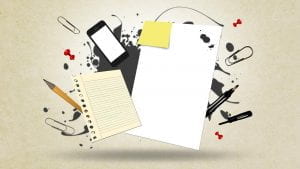
Have you taken steps to organise your research, documents etc? What strategies could help to ensure our research is preserved amidst changing technologies in the future?
A4 #ANZAncestryTime
Constantly re-organizing.
Digitizing letters, documents, notes, photos, etc
Originals being kept; the remainder tossed.
One hardcopy/ display set (see attached graphic)
SLR🍀🐰 https://t.co/Hy8Xq3iDvq pic.twitter.com/FUO9yj4DAx— SirLeprechaunRabbit®™️🍀🐰🇨🇦 ATKINSON ONS (@leprchaunrabbit) August 31, 2021
honestly, with the changing speed of technology I just don’t trust that we won’t lose data over time. I trust hard copies more and digitise as a backup. I believe books have a better chance of survival.
I definitely agree with you. Print will survive any change in technology. Paperless #Genealogy is not my goal–my goal is perpetuating #FamilyHistory for the sake of future researchers and future descendants.
I have THOUGHT about the steps I need to take to preserve my family history. Now I need to take some steps!
try using brightly coloured Post It notes stuck on drawers of filing cabinets et al. Eg scan this drawer by August/September etc. Visual flags.
I’ve scanned my photo albums, my sister has scanned her collection, waiting for my brother to scan the albums he has had for about 20 years. I will pass on my original albums once I have written about them.
I am now using FOREVER rather than dropbox Margaret.
One payment and I have forever storage of photos guaranteed to keep up with changing technology
Yes have used ppt for videos now I upgraded to Office 2019, easy to add photos and commentary for each slide
have digitalised some things but have so much it would take rather long time. But whilst prepping for blogs before being written up, this is when I sort things out a bit.
it is incredibly tedious to do but then again there may be an advantage in going over old ground. We see new things every time we look at a document again.
Have evidence scattered across hard copy files and electronic files; the latter could be better organised (note to self!) and have made a start to writing biographical narratives which are kept both in electronic form and hardcopy …
Currently digitising photos, docs and writing up family histories and checking genealogy databases and adding citations. Not a quick process but doing it one set of GG grandparents at a time. Salami tactics.
I cannot wait to get rid of my archive boxes once everything is scanned Shauna. We inherited paper and will leave things in digital format.
A tough one, as some of the answers to earlier questions indicate. I’m not quite at the point of some, writing up wikis or blogs but I do need to get better at it, even sharing my working notes around family members would be a start. As crgalvin said LOCKSS – Lots of copies, keep stuff safe
Make videos and save to youtube. More that it is another free place to save stuff. Your talks that are not held to ransom by organisers would be an option also.
do the steps have to be practical? Can’t they be in my head? “All” my records are in family folders which should help but I need to streamline them and weed out the excess. A LOT still to be done!
Today I’ve been Re-reading Devon and Andy Lee’s book on Downsizing with Family History in Mind. It really sets out a clear, practical path. Highly recommended.
yes isn’t it? I printed out the kind of timeline or checklist they suggest. I reckon the paper is the hardest stuff to get through. Furniture, china…all that is easy. I’m even finding books easy now 🙂 (shock! horror!)
The papers and the fiddly bits like badges that lurk in the corners and have a story to tell.
Lots of tips and blogposts found by Alex and other participants
- Preserving blog in book format
- Be your own digital archivist – Legacy family tree webinar
- Preserving memories with Paul Lindner
- Link rot, pay walls and perils of preservation with ABC
- Future Proofing your family history from MyHeritage blog
- Videos and PDFs from Congress USA
- No heirs for your family history by Marian Burk Wood
#Genealogy NEW edition of “Planning a Future for Your Family’s Past” will be published on September 1! Step by step, see the PASS process for saving #FamilyHistory for the future (even if there are no obvious heirs) #AncestryHour #ANZAncestryTime #GenChat https://t.co/cbvAgtfmJ6 pic.twitter.com/941lJAcXZD
— Marian Burk Wood (@MarianBWood) August 31, 2021
Readers: Have you thought about how you are going to preserve your family history into the future?
